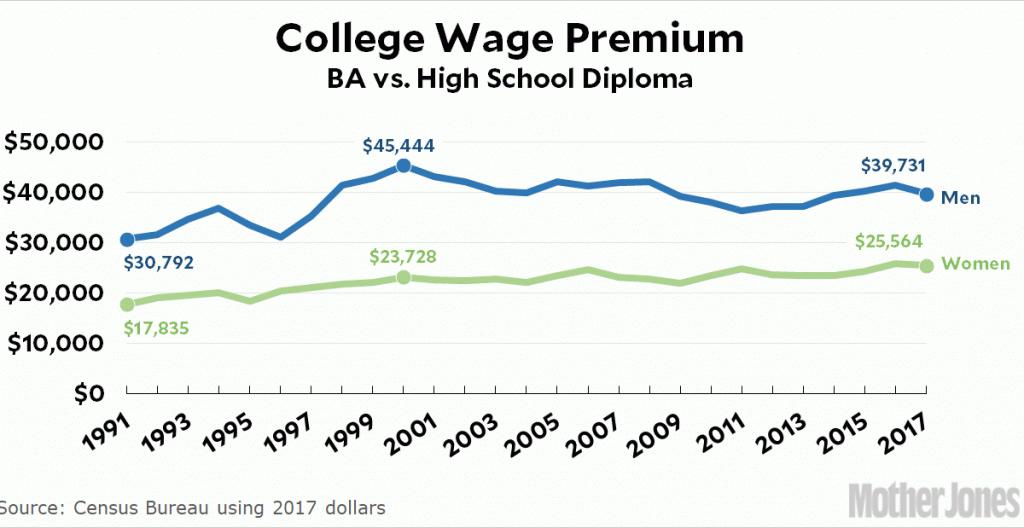Chart of the Day: The College Wage Premium Over Time
The Wall Street Journal, in its everpresent quest to show that millennials are screwed in every possible way, says this today:
Investing in a college degree still pays off for most students with higher salaries and greater wealth, but in recent years it has become riskier, splitting graduates more widely into haves and have-nots.
….There are three related shifts causing economists to re-examine the returns of college. First, the wages of college graduates have remained mostly flat this century, after inflation. Second, the cost of attending college has soared. Third, even with higher salaries, significant numbers of college graduates in recent years are failing to build the kind of wealth that previous generations did.
….The question of higher education’s value has gained urgency because so many more Americans are going to college than before, and because they are paying far more to do so. The share of Americans between ages 25 and 29 with a bachelor’s degree rose to 37% last year from 29% in 2000, Education Department data show.
This is basic math, guys. If you expand the college pool, you’re drawing almost exclusively from people who wouldn’t have gone to college before and are only barely qualified. These people are likely to do worse even if they graduate, and will naturally add to the low end of the bell curve. There’s nothing surprising about this.
But if this is true, it should pull down the average wage premium too. It hasn’t:
If you cherry pick the peak of the dotcom boom, then sure, it looks like men have indeed gotten less out of a college education lately. But that was a four-year bubble. If you look at a longer timeline and discount the dotcom years, the wage premium for men grew steadily through the start of the Great Recession, took a hit, and then recovered. That’s the story for almost everyone.
College-educated women, by contrast, were apparently left out of the dotcom bubble but also didn’t suffer much from the Great Recession. Their wage premium has grown steadily for the past quarter century.
Getting more kids into college is generally a worthy goal, even if it artificially pulls down the average. That’s not something to worry about. Likewise, the wealth of college grads is still about double that of nongrads. However, it has declined substantially among millennials. This is likely due at least in part to skyrocketing student debt, which is currently a topic of considerable conversation. For my money, I’d wait a while to see how much is due to student debt and how much is due to other factors related to the Great Recession, but your mileage may vary.





